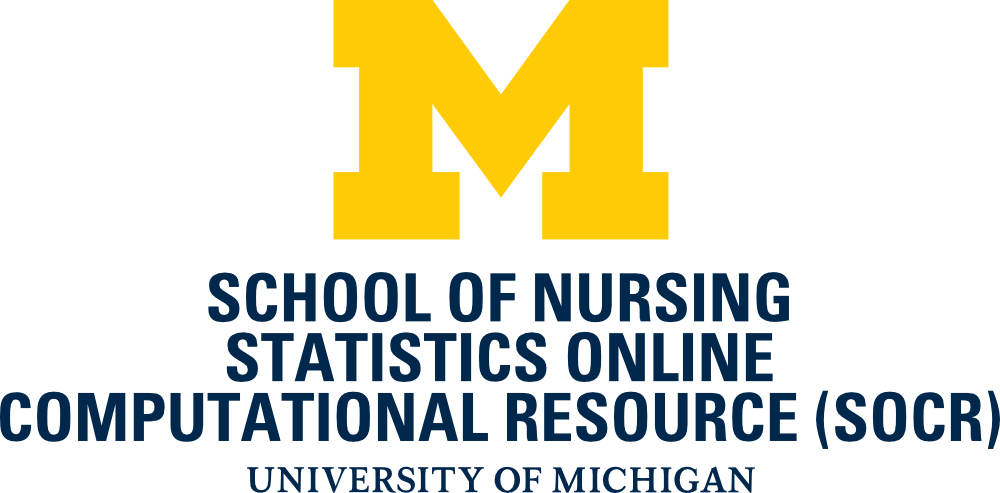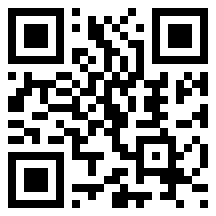About SOCR
Learn about SOCR, find details about the SOCR projects, team, publications, licenses and organization, and discover the broad spectrum of SOCR materials. Give Now »
What is SOCR?
The Statistics Online Computational Resource (SOCR) aims to design,
validate and freely disseminate knowledge. Specifically, SOCR provides portable online
aids for probability and statistics education, technology based instruction,
statistical computing, and predictive big data analytics. SOCR tools and resources include a repository of interactive
applets, computational webapps and graphing tools, instructional and course materials.
SOCR is one of the
~90 University of Michigan Research Cores and provides
consulting on data science, biostatistics, and biomedical informatics.
SOCR is one of the NIH RRID Resources (RRID:SCR_022917)
providing key research support to increase scientific rigor, reproducibility and transparency in research.
SOCR Team »
SOCR Research »
What are the main SOCR Components?
The core SOCR educational and computational components include: Distributions (interactive graphs and calculators), Experiments (virtual computer-generated analogs of popular games and processes), Analyses (collection of common web-accessible tools for statistical data analysis), Games (interfaces and simulations to real-life processes), Modeler (tools for distribution, polynomial and spectral model-fitting and simulation), Graphs, Plots and Charts (comprehensive web-based tools for exploratory data analysis), Additional Tools (other statistical tools and resources), SOCR Wiki (collaborative Wiki resource), Educational Materials and Hands-on Activities (varieties of SOCR educational materials), SOCR Statistical Consulting and Statistical Computing Libraries.
How to use the SOCR Resources?
SOCR engages and services three types of constituents: (1) researchers and educators, (2) formal students and non-traditional learners, and (3) applied scientists and tool developers. Course instructors, researchers, and teachers contribute to, and utilize, the SOCR class notes, datasets, case-studies, and interactive tools to increase student motivation, enable concept demonstrations, and promote technology-based pedagogical approaches to any study of variation or process uncertainty. Learners and trainees use the SOCR class notes, analytic activities, computational and graphing tools to improve their conceptual understanding, expand their practical skills, and refresh their knowledge. Model developers, software programmers and applied researchers expand and harness the light-weight plug-in oriented SOCR computational libraries and infrastructure to develop new algorithms, designs meta analyses, and conduct data-driven research studies.
The three types of SOCR resources are:
- Interactive Java applets:
these include a number of different applets, simulations,
demonstrations, virtual experiments, tools for data visualization and
analysis, etc. All applets require a Java-enabled browser (if you see a
blank screen, see the SOCR Feedback
to find out how to configure your browser).
- Instructional Resources:
these include data, electronic textbooks, tutorials, etc.
- Learning Activities: these include various interactive hands-on activities.
- SOCR Video Tutorials (including general and tool-specific screencasts).
SOCR Citations and Licenses
Please see descriptions of the permissive fair-use SOCR licenses and explore the SOCR publications and citations.
SOCR Support
Please consider making donations of any size to support SOCR student stipends (for resource development and conference travel) and instructor-training/continuing-education workshops (travel and stipends for K-16 educators to attend annual SOCR-events).

